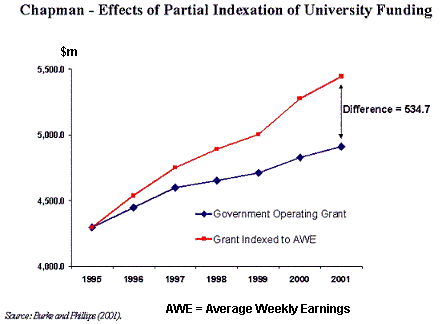|
An Unexpected Observation from a Reformist Former Vice-Chancellor |
On August 6th last year Mary O'Kane announced her resignation from
the Vice-Chancellorship of the University of Adelaide. In the five years that
she served as vice-chancellor Professor O'Kane strove to introduce reforms, "The
challenge [of which] has been to bring about the change necessary to position
the University for growth at a time of reduced funding and consequent pressure
to generate significant new sources of income." Her approach in meeting the
challenge brought tension between her and the university board to a point where
a constructive relationship appeared to have become sufficiently difficult to
cause Professor O'Kane to tender her resignation.
In a short essay for the March issue of the WiseNet
Journal which O'Kane titled "Tilting at windmills, sliding down snakes and
generally having a great time" she says in part, "I have a passionate belief
about Australian higher education and research institutions. I believe Australia
should make the very best out of its investment in these organisations. I
believe that a knowledge-rich society is essential for the social and economic
well-being of our country. I would like to see more public investment in higher
education but it is hard to see what areas of public spending could be cut to
provide it [italics ours]."
What is so unexpected in that observation by the former
vice-chancellor is that she would be as well aware as any of her v-c colleagues
that the current average expenditure for OECD countries in R&D as a per-cent of GDP is
just over 2% while Australia's remains, at best, static at 1.4% of GDP. The
Federal Government has made the point that it's contribution per se is
among the better of the OECD countries and it is the private sector that is

Alex Reisner
The Funneled Web